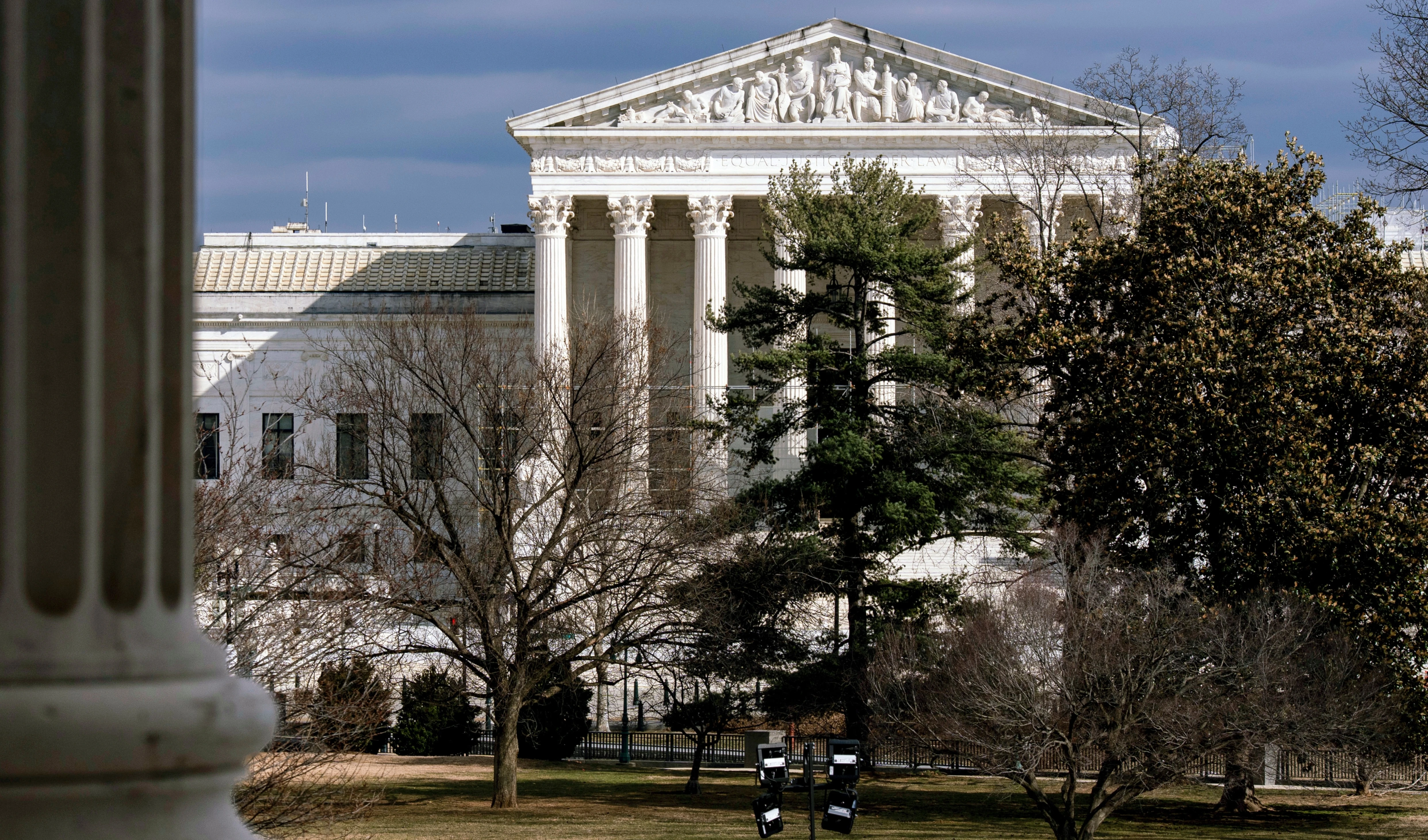Alawite Council rejects Syria’s Transitional Justice Commission
The Supreme Alawite Islamic Council in Syria and Diaspora warns that the administration's current approach to transitional justice risks deepening sectarian divides and undermining reconciliation.
-

Syria's interim President Ahmad al-Sharaa looks on during a joint press conference with Turkish President Recep Tayyip Erdogan at the presidential palace in Ankara, Turkey, February 4, 2025. (AP)
The Office of Coordination and Public Relations for Local and International Affairs of the Supreme Alawite Islamic Council in Syria and Diaspora has rejected the legitimacy of the recently announced National Commission for Transitional Justice, questioning both the authority under which it was created and its narrowly defined mandate.
In an official statement, the committee asserted that “it is neither within the rights nor the authority of the head of the de facto authority to form such a body,” declaring that the decree establishing the commission is “null and void” due to the lack of legislative power.
It also criticized the commission for focusing solely on violations committed by the former regime while ignoring “crimes committed by opposition and revolutionary forces,” as well as those perpetrated against Alawite and Druze communities following the regime’s fall.
The committee stated that “transitional justice in Syria can only be achieved through a UN Security Council referral to the International Criminal Court, or by establishing a special international investigation commission and court for Syria, one that includes Syrian judges from all sides.”
It added that any justice framework must eventually be presented to the Syrian people in a national referendum, allowing them to decide between “general amnesty or limited accountability for top criminals from all sides.”
The council emphasized that transitional justice should never become an act of vengeance. “Under no circumstances should amnesty include wealth accumulated by criminals at the expense of the Syrian people's resources,” the statement read.
Furthermore, the committee accused the commission of deliberately excluding acts of genocide and violence committed against minorities, particularly the Alawite and Druze communities, after the collapse of the previous regime.
It also called for a just process that prioritizes deterrence, reparations, reconciliation, and institutional reform, warning that a one-sided or politicized mechanism risks undermining the legitimacy of future accountability efforts.
Politicization of justice and risk of further division
The appointment of Abdul Baset Abdul Latif, political bureau chief of the FSA's Eastern Lions Army, and a member of the National Coalition for Syrian Revolution and Opposition Forces, was cited as evidence that the commission lacks neutrality, as per the committee.
“Politicizing the concept of transitional justice by the de facto authority will only deepen societal divisions among Syrians and further erode trust between the country's various components and state institutions,” the committee warned.
Such actions, it said, would delay progress toward security and development, raise questions about the rule of law, and risk triggering renewed cycles of violence.
The statement also highlighted contradictions between the formation of the commission and earlier promises made by transitional phase President Ahmad al-Sharaa during his meeting in Riyadh, where he pledged to uphold international law and work toward lifting economic sanctions.
“These steps also stand in stark contrast to Sharaa’s discourse on national unity and equal rights for Syrians under the law,” the committee stated.
It concluded that “these attempts to dilute the concept of transitional justice are completely unacceptable and run counter to the spirit of UN Resolution 2254 and international efforts aimed at Syria’s stability and development.”
Expanded context
The transitional authorities in Syria had announced on Saturday the formation of the National Commission for Transitional Justice.
A decree signed by al-Sharaa stated that the newly established commission would be responsible for uncovering the truth about “grave violations committed by the defunct regime,” ensuring accountability in cooperation with relevant entities, delivering reparations to victims, and promoting both non-repetition and national reconciliation.
The decree also named Abdel Baset Abdel Latif as head of the commission and tasked him with forming a team and submitting a draft of the commission’s bylaws within 30 days. The document emphasized that the body “shall enjoy legal personality as well as financial and administrative independence,” and will operate across all Syrian territory in pursuit of its mandate.
In parallel with judicial reforms, the transitional leadership is intensifying efforts to restructure the military landscape. Defense Minister Murhaf Abu Qasra announced that all official military units have been consolidated under the Ministry of Defense, in what he described as a drive to centralize command and improve institutional cohesion.
While the minister did not specify which factions had yet to comply, his remarks underscore a growing urgency to eliminate fragmented loyalties and consolidate control over all armed formations.
The transitional authority, which formally dissolved the security and military arms of the former regime around two months after its fall on December 8, also disbanded all armed factions, including Hay’at Tahrir al-Sham, as part of broader reforms.
However, despite these structural efforts, authorities continue to face major challenges in asserting control nationwide. Persistent pockets of armed groups, shifting local alliances, and regions with limited public support remain key obstacles to the stabilization of the country.
Read more: ISIS attacks al-Sharaa over Trump meeting, Syria political transition

 5 Min Read
5 Min Read










